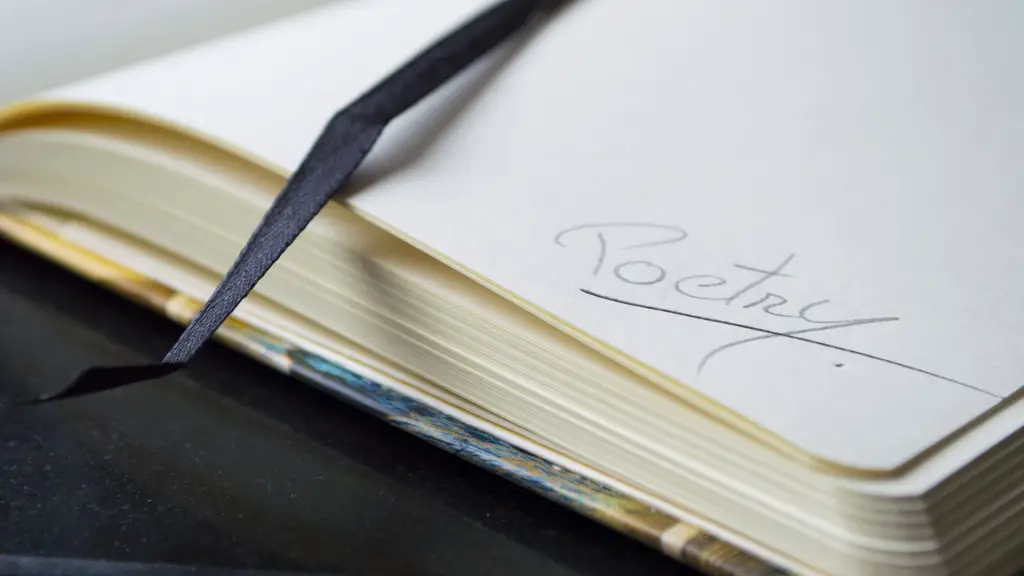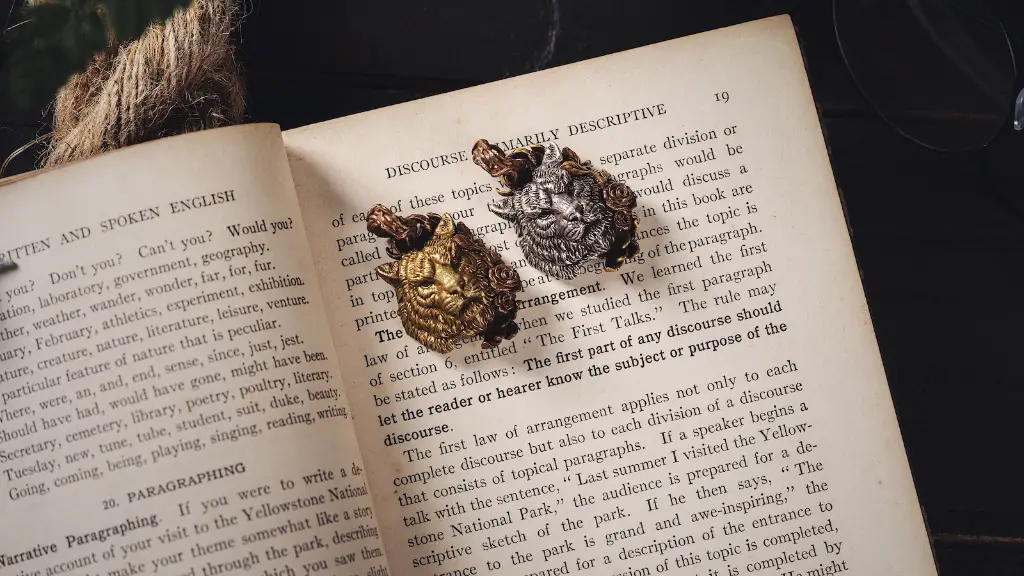What is poetry and why is it important? It is a form of literature which expresses ideas, feelings, and perceptions in a unique way, often utilizing rhythm and imagery to evoke emotion. It is an art form that has been around for centuries and continues to be a form of expression for people all over the world, regardless of background or culture. Poetry is important both socially and educationally, and its significance should not be underestimated.
First, poetry is an embodiment of social change. Poets have always been at the center of social movements that contribute to personal and collective shifts in attitudes and behaviors. For instance, poetry has been used to express the injustices suffered by various oppressed groups and to encourage others to resist oppressive systems. This centuries-old art form demonstrates to modern audiences the power of language to influence and create social change.
Poetry can also be a motivational and inspiring tool for personal growth. Poetic works filled with emotion and symbolism can draw in and immerse readers in a scenario, helping them to connect to their innermost desires and passions. Through this connection, readers may be inspired to take bold steps to live their lives in a way that honors their core values.
Poetry has an educational potential as well. Poetry can cross language barriers due to its effective use of imagery and rhythmic delivery. With their creative and vivid descriptions, poems capture the attention of children and entice them to learn more about language and its nuances. Through reflective reading, students can explore metaphors and allusions while building their skills in critical thinking and analysis. Additionally, poetry can unlock students’ writing potential and increase students’ vocabulary.
Poetry has all of the natural elements and characteristics which can be explored and discussed, allowing readers to build an understanding and appreciation of its importance. Through interactive elements such as similarities and contrasts, poems become tools for developing other literary frameworks such as literary criticism, environmental awareness and even our own personal connection to the spoken and written word. Furthermore, understanding poetry moves us beyond the page, teaching us about the world and our place in it.
Examining Poetry Across Cultures
As the world becomes more and more interconnected, it is even more necessary to look at poetry’s unique place within different cultural settings. Every culture has its own unique perspective and traditions, and this can be observed in their respective poetry forms. For instance, Chinese poets read and discuss their poetry as part of traditional ceremonies, while Hindu poets often seek to encapsulate the vast and enigmatic spirit of Hinduism in their works. By engaging with different poetic works, readers can gain a better understanding of the cultural and religious beliefs of societies across the globe.
Moreover, looking at poetry through a cultural lens can also help readers to hone in on issues of inequality and intolerance. By exploring works from various cultural perspectives, readers can come to a better understanding of others’ struggles and may be more inclined to empathize with those who face adversity in different cultural settings. This can help build respect and appreciation for the varied customs, traditions, and beliefs of societies around the world.
Growth of Poetry in the Digital Age
The rise of electronic media provides poets with a platform to share their work with a wider audience and to make their work more accessible to readers. Many modern poets are utilizing the internet to reach new readers and to engage in conversations with their audience. Through social media, bloggers, and online journals, writers can gain insight into public opinion on their works and can be connected with other artists around the world. This creates a new digital community that centers around the growth and discussion of modern poetry.
The digital explosion is also changing the way poets engage with their audience by utilizing multimedia elements to engage interactivity with viewers. Videos, animations and soundscapes are just a few tools that poets are leveraging to combine text with visual and audio components, thus creating a more immersive and captivating viewing experience for their audience.
Social Activism & Poetry
Poetry has the power to not only reveal injustices but also to encourage readers to fight hard to bring about social change. Poems act as a catalyst to ignite passion, spark dialogue, and inspire past, current and future activists. For poets, this is an opportunity to not only share their message but to hook readers in and motivate them to take action.
In fact, social movements around the world have adopted the use of poetry to raise awareness of their causes. For instance, protests in the aftermath of George Floyd’s death in the United States focussed on poetic expressions of the fight for justice by speakers and poets alike. Through these poems, members of the movement were able to invoke powerful emotions and calls to action from members of the public. In this way, poets bring their words to life and create an everlasting impact in our society and on our culture.
Analysis and Impact of Poetry
In addition to its social and educational benefits, poetry also provides an avenue for readers to reflect on their own understanding of language and literature. Through examination, analysis and interpretation, readers develop both language-based and critical thinking skills. In reading and analyzing poems, readers identify poetic devices, comprehend and evaluate the purpose of the work and develop their skills in communication and discussion.
Poetry allows readers to explore the nuances of language, to appreciate the beauty of words and to develop empathy, creativity and insight. Moreover, understanding poetry helps readers become better writers and it allows them to engage with literature on a deeper level.
Celebrating Poetry in Everyday Life
Despite its ancient roots, poetry is still very much a part of everyday life. From modernized poetry slams featuring popular artists to more traditional poetry readings at libraries and bookstores, poetry remains a source of solace and enlightenment for many around the world. Poetry is an integral part of our culture, and its importance should be celebrated by everyone through reading, writing, and discussing poetic works.
In addition to avid readers and writers, poets and literature enthusiasts, now more than ever, parents, teachers, and students are encouraged to read and write poetry. From inspiring class discussions to creative writing assignments, the use of poetry in the classroom is a great way to reimagine the learning process and to instill a love for literature in students.
Uses of Poetry for Self-Awareness
Poetry can act as a source of personal understanding and healing. Many readers turn to poetry for comfort, renewal and guidance on their journey to self-awareness. Through an emotive connection with the written word, readers can escape from the monotony of day to day life and reflect on their own experiences and perspectives. Poems can inspire insight into our lives, helping us to confront and accept our fears, failures, emotions and joys.
By understanding and appreciating poetry in both its written and spoken form, readers can find solace and comfort in their thoughts and feelings. Poetry helps readers create connections and to form their own perspectives on critical issues and thoughts. Poetry is an outlet for personal growth and understanding, which is why it is so important.




